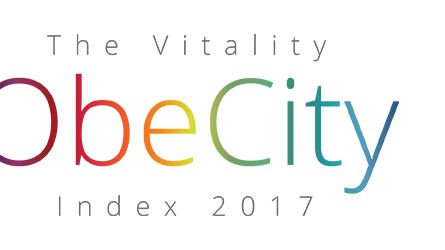
Press release -
South Africa’s healthiest city revealed
Cape Town has the highest number of people who are a healthy weight, plus they purchase the most vegetables and fruit, when compared with South Africa’s other major cities.
This is according to the Discovery Vitality ObeCity Index 2017, which presents the latest insights on weight status (measured by Body Mass Index and waist circumference) and food purchasing behaviour of nearly half a million Vitality members in Johannesburg, Pretoria, Cape Town, Durban, Bloemfontein and Port Elizabeth.
“Insights from the Vitality ObeCity Index 2017 allow us to better understand the amount of sugar and salt in the foods we are actually buying, as well as fruit and vegetable consumption,” says Dr Craig Nossel, Head of Vitality Wellness.
The impact of obesity on individual health, globally, is significant. The number of people who die each year as a result of being overweight or obese (4.5 million) is now more than the number of worldwide deaths linked to being underweight. In addition to health concerns, obesity impacts the global economy. R16.4 trillion is lost each year, which is roughly equivalent to the impact from smoking or wars globally. The economic impact of obesity in South Africa is estimated to be R701 billion each year.
One of the most important factors contributing to the obesity epidemic are changes in dietary patterns characterised by the increased consumption of sugar, salt, fat and animal products. Ultra-processed food contains high percentages of most of these products. In South Africa, sales of ready-made meals, snack bars and instant noodles increased by 40% between 2005 and 2010. Fast food consumption continues to grow, negatively impacting our weight.
Says Nossel, “We see a direct correlation between weight status and health outcomes. People with an unhealthy bodyweight incur a direct increase in healthcare costs of approximately R4 400 per person per year. We also know that the purchase of healthy foods has a positive impact on BMI and the associated risks of developing chronic diseases of lifestyle.” Discovery data shows that members who purchase healthy foods have a 10% lower BMI compared to those who purchase unhealthy foods. The same purchasing behaviour is associated with up to R2 500 lower health costs per year.
In reviewing the results, Distinguished Professor of Nutrition at the University of North Carolina, Barry Popkin, says: “The analysis underlying this report shows that by reducing purchasing of unhealthy confectionary and convenience meals and processed meats, a half unit of BMI would be decreased and similarly reducing sugary drinks and salty snacks would produce a similar impact. Both changes were linked with replacement by healthier foods and healthier beverages. These reductions in BMI were in both cases associated with lower healthcare costs per year. But more importantly, these create longer-term healthier eating trajectories which promise to have even greater effects.”
Nossel concludes, “While tackling obesity is complex, it is critical that we all do our bit. As individuals, we need to move more and consciously make healthier food choices. As businesses, whether manufacturers, retailers, or restaurant owners, we need to actively contribute to creating a society where the healthy choice is the easier choice.”
A summary of the results:
| Category | Description | Rank |
| Weight status | A combined score using Body Mass Index (BMI) with waist circumference. | 1.Cape Town 2.Johannesburg 3.Durban 4.Pretoria 5.Bloemfontein 6.Port Elizabeth |
| Food purchasing score | The ratio of healthy to healthy-plus-unhealthy products purchased at Pick n Pay and Woolworths through the HealthyFood benefit. The higher the score, the healthier the basket of food. | 1.Cape Town 2.Bloemfontein 3.Port Elizabeth 4.Pretoria 5.Johannesburg 6.Durban |
| Fruit and vegetable intake | The average number of fruit and vegetable portions purchased per member. | 1.Cape Town 2.Johannesburg 3.Bloemfontein 4.Pretoria 5.Port Elizabeth 6.Durban |
| Salt intake | The average number of teaspoons of salt purchased per member – determined by taking into account purchases of salt as well as of high-salt foods. | 1.Durban 2.Port Elizabeth 3.Pretoria 4.Bloemfontein 5.Cape Town 6.Johannesburg |
| Sugar intake | The average number of teaspoons of sugar purchased per member – determined by taking into account purchases of sugar as well as sugary snacks and drinks. | 1.Durban 2.Port Elizabeth 3.Pretoria 4.Johannesburg 5.Cape Town 6.Bloemfontein |
ENDS
Vitality is a health programme that encourages and rewards members as they get healthier. The programme is based on a unique combination of clinical evidence, behavioural economics and actuarial expertise. It is grounded in research that shows that people can make a significant impact on their health by changing their lifestyle.
While the Vitality model is built on complex science, it manifests around a simple yet profound concept: get rewarded for healthy behaviour.
South African Vitality members are managing their health and being rewarded for doing so.
Topics
Categories
Discovery information
About Discovery Limited
Discovery Limited is a South African-founded financial services organisation that operates in the healthcare, life assurance, short-term insurance, savings and investment products and wellness markets. Founded in 1992, Discovery was guided by a clear core purpose – to make people healthier and to enhance and protect their lives. Underpinning this core purpose is the belief that through innovation, Discovery can be a powerful market disruptor.
The company, with headquarters in Johannesburg, South Africa, has expanded its operations globally and currently serves over 10 million clients across South Africa, the United Kingdom, Germany, France, the United States, Canada, Australia, Singapore, Hong Kong, Philippines, Thailand, Malaysia, China and Japan through our Global Vitality Network.
Vitality, Discovery’s wellness programme, is the world’s largest scientific, incentive-based wellness solution for individuals and corporates.
Discovery is an authorised financial services provider and trades under the code “DSY” on the Johannesburg Securities Exchange.
Follow us on Twitter @Discovery_SA







